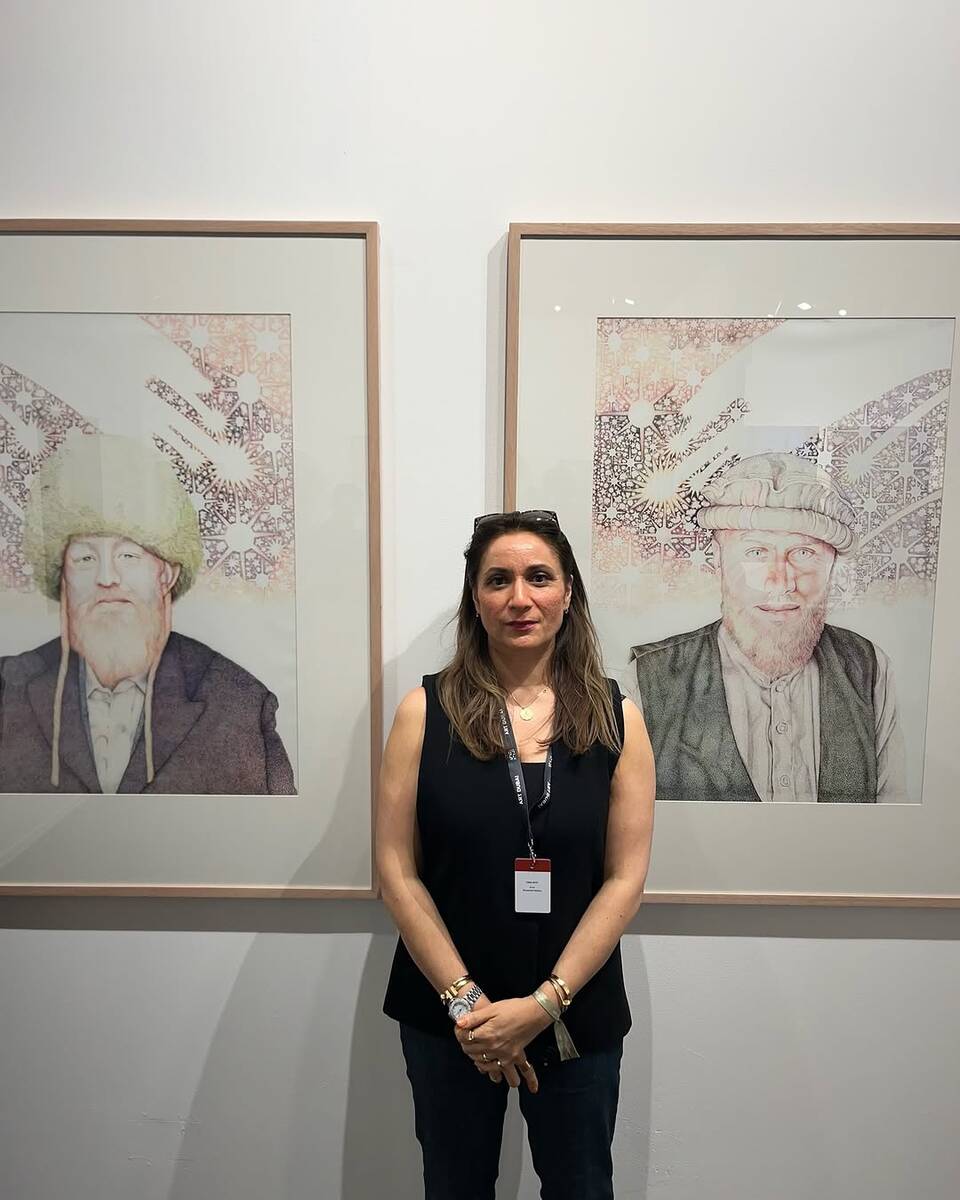KARACHI: Maryam Ameer’s world fell apart when her 22-year-old son, an addict, threatened his wife with divorce. His words brought back painful memories from 20 years ago when her husband abandoned her due to his own drug use.
Ameer fought through years of hardship alone to raise her two sons, but now history seemed to be repeating itself, only with different characters and the same underlying cause of her suffering: the rampant flow of drugs into her coastal village in Karachi.
Rehri Goth, with a population of nearly 70,000, is primarily home to ethnic Sindhi fisherfolk and dates back to the 13th century. The coastal village has become a hub for drug peddlers in recent decades, with hundreds of addicts often lining its shabby streets.
“He says ‘I will divorce my wife too,’” 40-year-old Ameer said, taking a sigh and pausing her sewing machine, her sole source of income in all these years. “There is no one who may put an end to drugs [in this village]. [The lives of] Our sons are being destroyed because of this.”
Her voice tinged with grief as she recalled the moment her husband abandoned her.
“Life has been ruined for all women just because of these men,” she added. “They are not willing to quit this addiction.”
The rising divorce rate in Rehri Goth alarmed social worker Nawaz Ali, who married a woman divorced by an addict. This prompted him to conduct a manual survey in all eight neighborhoods of the village, uncovering some shocking facts.
“I compiled a list that included the names of 850 [divorced] women,” Ali told Arab News, adding: “There is no place [in this neighborhood] where you will not find divorced women.”
In a recent incident, Ali said a 14-year-old girl committed suicide after her parents forced her to marry a boy who was a drug addict.
Arab News interviewed around 20 women in the coastal town who were divorced by their drug-addicted husbands.
“My husband left me. He was also addicted,” said 29-year-old Shahida, who goes by a single name.
Her husband divorced her last week, leaving their infant daughter in her lap. Shahida’s elderly father, who catches crabs and other seafood for a living, now bears their expenses.
“It’s very difficult to manage the expenses of children,” she said.
While interviewing these women last Sunday, Arab News witnessed drug transactions openly taking place in the streets of Rehri Goth, but none of the addicts agreed to speak about the drug distribution network in the locality.
“Here, this whole area is infested with drugs. Wherever I sit, it’s a den of drugs,” said Mushtaq Ahmed, a police officer administering a drug rehabilitation center run by the Sindh police in Rehri Goth. “If you look around, you’ll see drugs being sold everywhere.”
Frequent police actions have failed to dismantle the network of drug peddlers and most of them vanish in the narrow streets at the sight of the law enforcers, according to Ahmed.
Kashif Aftab Ahmad Abbasi, senior superintendent of police (SSP), said they had “zero tolerance” for drug peddlers in Karachi’s Malir district, where Rehri Goth is located. He cited various drug busts in June, including seizures of 704 grams of ice, 3.41 kilograms of heroin, 52.189 kgs of charas and 51 bottles of wine, with cases registered against the offenders.
Nevertheless, drug dealers continue to occupy the streets, significantly affecting the community, particularly women.
“We don’t produce it at home, someone is supplying it from the outside,” said Hurmat Muhammad Rafiq, a social worker in her 40s who launched a campaign against the menace of drugs after her own son became an addict. “Someone or the other is supplying it. That’s why this [drug addiction] is growing.”
In addition to drugs, Rafiq said, early marriages were also contributing to the rising divorce rate in the area.
“Don’t marry off children at a young age. Let them grow up first, then arrange marriages for them,” she urged, after discussing a campaign plan with women in the neighborhood. “If they get married now [at an early age], within five to six months, they end up divorced.”
The men, who were addicted to drugs, had no regard for their wives, according to Rafiq.
“The husband comes back after smoking a cigarette, exhales smoke, and asks the wife if there is food or not. [She] says no, he kicks her and says, ‘I divorce you’,” she recounted.
“What is that poor woman supposed to do now?”


























